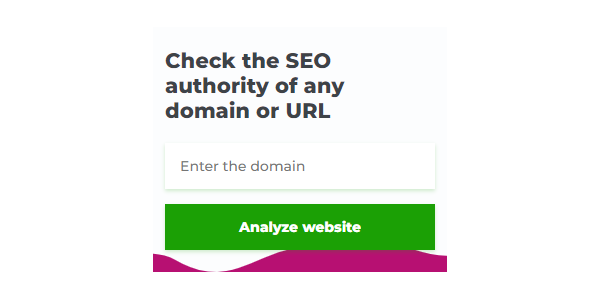
Gaining knowledge from those who are well-versed in both the theoretical and practical aspects of the job they do daily is always advantageous. Therefore, we reached out to upwards of thirty SEO professionals and asked them to disclose their top SEO strategies for novices.
Here are the questions we asked:
1. What single piece of advice would you give to a newbie to search engine optimization?
2. Have you come upon any new SEO advice, data, or methods recently? What was your last SEO aha moment?
At first, this roundup was meant to highlight SEO tactics for novice users, but it became apparent that the answers might be of interest for more seasoned individuals as well.
A variety of experts have put forth different ideas, but there are some common themes and tips that are echoed by multiple authorities. Here’s a visual overview of the tips by categories:
Let’s dive into the specific answers.
1. Focus on keywords and backlinks
I think there are a few things that you need to keep an eye or at least which you mustn’t neglect:
- Do keyword research. If you skip the keyword research stage then you’re going to end up with content pages that most likely won’t attract a sufficient amount of traffic. The golden rule is to find keywords that have the lowest competition and enough search volume.
- Allocate internal links. That’s what will help you rank higher without spending 10x hours on acquiring external links. I highly recommend cross-linking your content as well as adding the most important pages in your site’s navigation.
- Build links. The more links you have, the better. But build only quality links that will help your site not only rank better in Google but also establish your brand as trustworthy.
2. Get .edu links via coupons
I recently gave a talk at an event in Russia where someone presented ways to develop .edu links. I hadn’t encountered this approach until now but it could be applicable to any setting where one is marketing an item (not solely tangible). So here’s how this strategy would work for an e-commerce site:
- You create a special coupon code for students
- After this, you need to use this operator to find .edu sites that have a page with student discounts “site:.edu student discounts”
- The last step is to contact those sites and tell them that you’re providing a special discount for their students. Also, I’d recommend personalizing your promo codes by adding a college name to each code
1. Learn and test
Acquire just as much knowledge from the group as possible – there is a continuous circulation of SEO counsel and hints that will benefit you in your work – however, don’t be afraid to experiment with your own thoughts and hypotheses in order to find out what works.
Even if all you’re doing is experimenting with different kinds of content, like satire, that few people mention but one random blog did it and received a lot of links.
SEO has several basic components and many possible “tricks” to potentially distract you. It is beneficial to concentrate primarily on the first option while also trying out the second as well.
2. Playing with the content dates
I have been extensively studying the theme of newness and how individuals manipulate search engine results to make items appear refreshed even though they haven’t been. It’s intriguing to observe the tactics employed by numerous large websites in obtaining false information.
I would state that there is no certainty that modifying the date of a blog post will certainly advance placements on web indexes, however, I have conducted various trials that show that it tends to be advantageous. I actually think you’ll find this tweet pretty interesting. I discovered that the only page on my webpage with a particular style was not showing up in a search, which is likely due to Google thinking that it had been made a long time ago (twelve years to be exact!).
Realizing the tips and tricks in this situation – such as knowing how to get Google to display a more recent date – is why I mentioned in the first reply that you should always strive to learn beyond the basics.
I have previously used this method before, yet I am repeatedly refreshing my knowledge of it.
Don’t rely on the search volume too much
My most recent realization was that one single keyword’s inquiry rate does not accurately reflect the total query traffic that could be obtained if that keyword were to be ranked for.
When you consider it, when conducting keyword analysis, we check out the number of searches for individual keywords, but when a website appears at the top of a search engine, it doesn’t just rank for one key word – it also obtains high rankings for numerous other related words.
Nowadays, I do not depend greatly on keyword searches. Instead, I take a look at the highest-ranked pages for my keywords of interest and analyze how much website traffic these pages obtain from the total keywords they are ranked for.
Learn by doing and find a mentor
Beginning dabbling in SEO can quickly become overwhelming, given all the guidance that can be accessed on the web. You invest a large amount of time studying SEO instead of taking action and implementing it.
I was in the same circumstance roughly 6 years ago when I began my career in search engine optimization. Only once I had procured a domain, constructed a basic WordPress page, and got going with the designs was I able to make speedy improvements to my acquired abilities.
In brevity, an outstanding strategy for a rookie in search engine optimization is to make a practice website and experiment with what is successful and ineffective while they are still grasping.
I highly suggest scouting out a person with extensive experience in SEO and inquiring if they would be willing to provide guidance and be a mentor. This was a great boost for me in terms of self-assurance and kept me enthused about the venture I was pursuing. It is crucial to have the expertise of an audio specialist when you are beginning.
SEO Experts Share Their Tips for Newbies
Hamlet Batista, RankSense
You may frequently encounter opposing advice from reliable SEO practitioners, between professional and Google, and even from various search engine optimization program providers. Who do you trust?
You should have faith in the figures which your client Analytics platform gives you, and make sure they are accurate by double-checking with Google Search Console. Every suggestion should be tested by conducting experiments to verify its validity.
What counts in the long run is the amount of traffic, leads, and sales you generate to keep customers satisfied and your job secure.
Chris Johnson, Bamboo Nine
Enhance your competencies by building your own practice website using WordPress. This can be a great location for learning through experimentation and establishing essential SEO tactics as you continue to advance your understanding.
If you can comprehend how a WordPress website is made and learn how to optimize it, you can offer far better services to your customers.
Once you become familiar with the basic installation of WordPress, begin to explore the numerous WordPress page builders available.
This enables you to gain a more profound insight into the difficulties you will confront when collaborating with numerous types of customers.
As you gain proficiency in SEO, you ought to carry on utilizing sandbox sites to further expand your insight. Take the opportunity to research diverse CMS processes, like Squarespace and Wix, to gain insight into completely varying processes of operating in static or JavaScript-dependent websites.
Having a solid understanding of web development can be extremely advantageous.
Dean Cruddace, Cultured Digital
Create a website related to something you enjoy, there are numerous platforms for making a website available for free online.
Prior to setting up the webpage, it is advisable to connect Google Search Console and Google Analytics to it. Take the time to become acquainted with both tools and use the plenty of links to advice and instructions in both.
Familiarize yourself with a search page result associated with a topic you think your new website would come up. Analyze what works well and what’s lacking, and decide how you can take the best elements of other sites and make your own even better.
These small steps will give you the motivation to commence working out how you will construct your own website. Don’t fret about programming just yet, that’s something to think about once you have a better understanding of the fundamentals. Instead, take advantage of your enthusiasm and leverage two free Google tools to gain insight on how your fans increase, what will do well and where things may need improvement.
- Build at your own pace, there is no right or wrong answer.
- Don’t obsess over ranking.
- Every page on your site needs a reason to exist, what are your objectives?
The initial stages of the process will remain the same, but will become increasingly specific as you create or have to manage more sites.
If you cannot figure out what to do, turn to the numerous groups on the internet; Twitter is an ideal spot to begin your research for SEO-related matters.
Barbara Klonowska, SALT.agency
Gaining knowledge of SEO necessitates two distinct components – theoretical comprehension and practical application.
To learn the theory, be curious! Look into scholarly publications and materials recommended by professionals in the field. Explore various sources of wisdom, such as videos, lessons, and seminars, to broaden your understanding. Explore examples of businesses you are captivated by.
Besides just studying SEO, try to stay updated on the latest news concerning business, ecommerce, and marketing overall. Seek out people (both on the web and in real life) who can share their wisdom in an exciting manner.
Once you understand the concept, be proactive and search for activities to use your skills right away. The optimum method to recall all the exciting information you have acquired is to remember it. Getting a full comprehension of the advantageous aspects of SEO tools requires practical implementation, rather than just reading about them!
Pierre Far, Deliberate Digital
Gaining knowledge about the operation of a search engine and understanding the reasons why they exist. These are two parts of the same goal.
Gaining knowledge of Google’s procedure of observing websites on the internet (called crawling), sorting the information (called indexing), and ordering the results (called ranking) is the initial stage. It is essential to be thorough in this part. Certainly, you don’t have to turn into a search technician, but it is essential to have knowledge of how search functions, why it operates like this, and the distinctions between the search platforms.
Grasping the market and corporate atmosphere in which search engines conduct business is essential.
Search constantly evolves. Search engines exist today for a variety of reasons, and the way people use them and what a search engine strives to offer them is vastly different than two decades ago. Moreover, these elements are expected to change dramatically in the next twenty years.
Search engines are constantly introducing fresh ideas and causing users to act differently, then adapting to the changed behaviors of their customers. It is important to take into account the shifting patterns of user behavior.
Brogan Renshaw, Firewire Digital
If I’m conversing with someone just beginning to learn about SEO, I always have one piece of advice. Whether you are employed by a company or an agency, you should engage in some form of side activity. Construct your own website and discover how to optimise your own material for higher search engine rankings.
Find out what works and what doesn’t. Gaining knowledge can be accelerated by experiencing setbacks on your own website and discovering how to get around them.
Constructing a site of your own requires you to learn the fundamentals of SEO. It encourages you to look for answers to issues – seek out the most reliable resources obtainable on the internet, which ones are beneficial (or not beneficial). Attempting to improve your own website is an excellent way to begin understanding the fundamentals of SEO.
Ammon Johns, Consultant
Don’t try to be an expert.
Many of the top professionals in Search Engine Optimization (SEO) do not self-identify as “experts”, while people with little knowledge who are trying to market and promote their services will often proudly refer to themselves as SEO experts.
SEO isn’t something you ever know and are done. The journey is one of perpetual education, exploration, in-depth investigation, and aspiring to be more skilled tomorrow than you are today. To be successful as an SEO expert, one must never stop learning and take a real interest in the field. If they do not, they will not only fail but make a fool of themselves too.
This field is still in its early stages of development, and it is continually being modified and expanded due to the introduction of novel tools, platforms, and technologies on a daily basis. I began my career many years prior to Google’s initiation and luckily I was able to alter my attitude to go with the alterations as they occurred, requiring me to exert great effort in order to remain up to date with all the changes and stay on the cutting edge.





